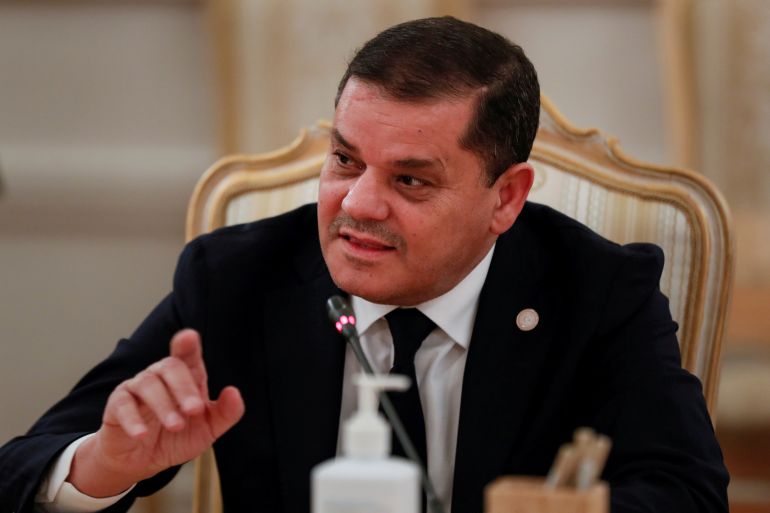Libyan delegates launch new round of UN-led political talks
The forum is trying to agree on a constitutional framework to govern the coming parliamentary and presidential polls.

Delegates from war-torn Libya are aiming to reach a compromise before planned elections.
Wednesday’s United Nations-led meeting via video conference came six weeks after the failure of negotiations held in Switzerland between the 75 participants from all sides gathered for the Libyan Political Dialogue Forum.
Keep reading
list of 3 itemsLibya gov’t hopeful mercenaries will withdraw ‘within days’
Libya’s new interim government is facing an arduous task
The UN Support Mission in Libya was forced to acknowledge the failure of that session after four days, due to a lack of consensus among the delegates.
The forum is again trying to agree on a constitutional framework to govern the crucial parliamentary and presidential elections in December.
Libya has been plagued by corruption and turmoil since a NATO-backed uprising toppled and killed longtime ruler Muammar Gaddafi in 2011. In recent years, the country was split between a UN-recognised government in the capital, Tripoli, and rival authorities based in the country’s east.
The rival administrations were backed by a complex patchwork of fighter groups, mercenaries and foreign powers. While Turkey supported a UN-recognised administration, eastern-based strongman Khalifa Haftar enjoyed backing from the United Arab Emirates, Egypt and Russia.
The UN estimated in December there were at least 20,000 foreign fighters and mercenaries in Libya, including Turkish troops, Syrians, Russians, Sudanese and Chadians.
In April 2019, Khalifa Haftar and his forces launched an offensive to try to capture the capital. Haftar’s 14-month campaign collapsed after Turkey stepped up its military support of the UN-recognised government with hundreds of troops and thousands of Syrian mercenaries.
Last October, a ceasefire agreement was reached that led to a deal on the December elections and a transitional government that took office in February.
The deal included a demand that all foreign fighters and mercenaries leave Libya within 90 days, but that demand has yet to be met.
The interim government, led by Prime Minister Abdul Hamid Dbeibah, is seeking to prepare the country for the coming polls.